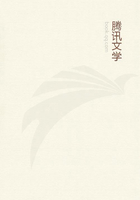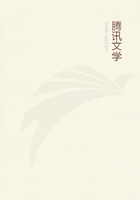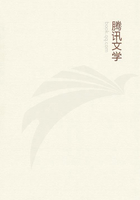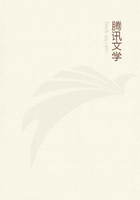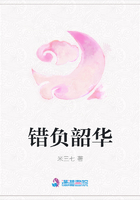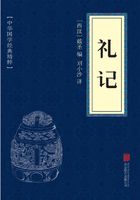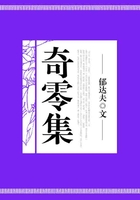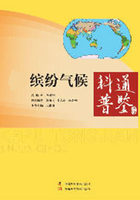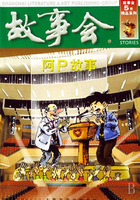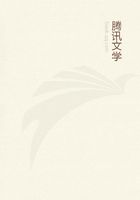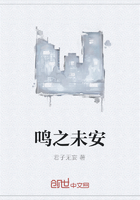George Sand never confined herself to any especial manner in her literary work. Her spontaneity of feeling and the actual fecundity, as it were, of her imaginative gift, could not be restrained, concentrated, and formally arranged as it was in the case of the two first masters of modern French novel-writing. Her work in this respect may be compared to a gold mine, while theirs is rather the goldsmith's craft. It must not be supposed, however, that she was a writer without very strong views with regard to the construction of a plot and the development of character. Her literary essays and reviews show a knowledge of technique which could be accepted at any time as a text-book for the critics and the criticised. She knew exactly how artistic effects were obtained, how and why certain things were done, why realism, so-called, could never be anything but caricature, and why over-elaboration of small matters can never be otherwise than disproportionate. Nothing could be more just than her saying about Balzac that he was such a logician that he invented things more truthful than the truth itself. No one knew better than she that the truth, as it is commonly understood, does not exist; that it cannot be logical because of its mystery; and that it is the knowledge of its contradictions which shows the real expert in psychology.
Three of her stories--/La Petite Fadette/, /La Mare au Diable/, and /Les Maitres Mosaistes/--are as neat in their workmanship as a Dutch painting. Her brilliant powers of analysis, the intellectual atmosphere with which she surrounds the more complex characters in her longer romances, are entirely put aside, and we are given instead a series of pictures and dialogues in what has been called the purely objective style; so pure in its objectivity and detachment that it would be hard for any one to decide from internal evidence that they were in reality her own composition.
To those who seek for proportion and form there is, without doubt, much that is unsymmetrical in her designs. Interesting she always is, but to the trained eye scenes of minor importance are, strictly speaking, too long: descriptions in musical language sometimes distract the reader from the progress of the story. But this arose from her own joy in writing: much as she valued proportion, she liked expressing her mind better, not out of conceit or self-importance, but as the birds, whom she loved so well, sing.
Good nature is what we need above all in reading George Sand. It is there--infectious enough in her own pages, and with it the courage which can come only from a heart at peace with itself. This is why neither fashion nor new nor old criticism can affect the title of George Sand among the greatest influences of the last century and the present one. Much that she has said still seems untried and unexpected. Writers so opposite as Ibsen and Anatole France have expanded her themes. She is quoted unconsciously to-day by hundreds who are ignorant of their real source of inspiration. No woman ever wrote with such force before, and no woman since has even approached her supreme accomplishments.
PEARL MARY-TERESA CRAIGIE.
LIFE OF GEORGE SAND
George Sand, in whose life nothing was commonplace, was born in Paris, "in the midst of roses, to the sound of music," at a dance which her mother had somewhat rashly attended, on the 5th of July, 1804. Her maiden name was Armentine Lucile Aurore Dupin, and her ancestry was of a romantic character. She was, in fact, of royal blood, being the great-grand-daughter of the Marshal Maurice du Saxe and a Mlle.
Verriere; her grandfather was M. Dupin de Francueil, the charming friend of Rousseau and Mme. d'Epinay; her father, Maurice Dupin, was a gay and brilliant soldier, who married the pretty daughter of a bird-fancier, and died early. She was a child of the people on her mother's side, an aristocrat on her father's. In 1807 she was taken by her father, who was on Murat's staff, into Spain, from which she returned to the house of her grandmother, at Nohant in Berry. This old lady adopted Aurore at the death of her father, in 1808. Of her childhood George Sand has given a most picturesque account in her "Histoire de ma Vie." In 1817 the girl was sent to the Convent of the English Augustinians in Paris, where she passed through a state of religious mysticism. She returned to Nohant in 1820, and soon threw off her pietism in the outdoor exercises of a wholesome country life. Within a few months, Mme. Dupin de Francueil died at a great age, and Aurore was tempted to return to Paris. Her relatives, however, were anxious that she should not do this, and they introduced to her the natural son of a retired colonel, the Baron Dudevant, whom, in September, 1822, she married. She brought him to live with her at Nohant, and she bore him two sons, Maurice and Solange, and a daughter. She quickly perceived, as her own intellectual nature developed, that her boorish husband was unsuited to her, but their early years of married life were not absolutely intolerable. In 1831, however, she could endure him no longer, and an amicable separation was agreed upon. She left M.

